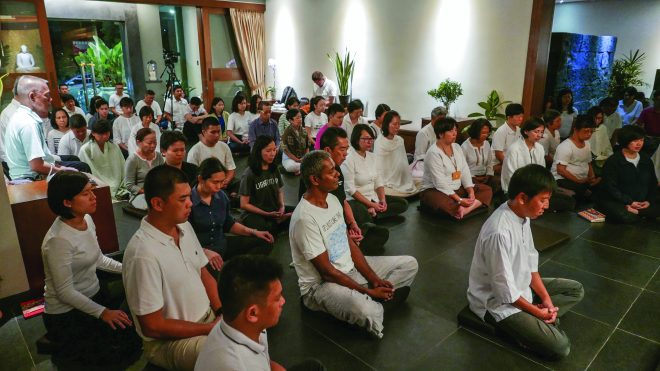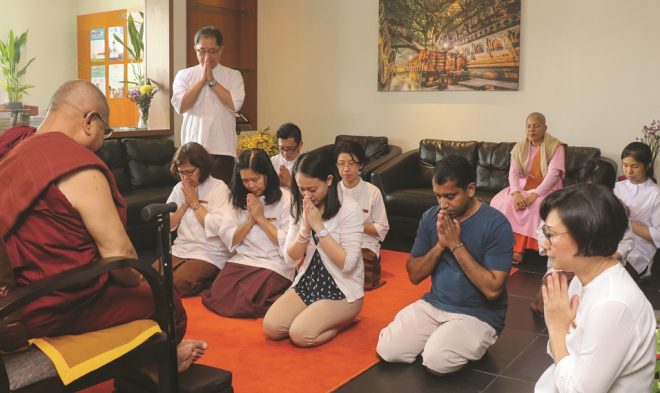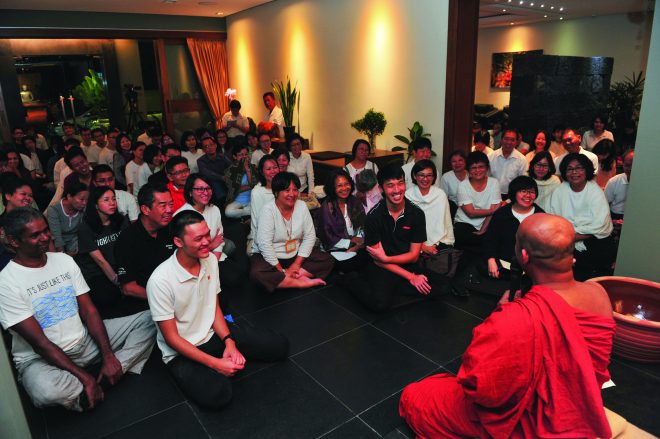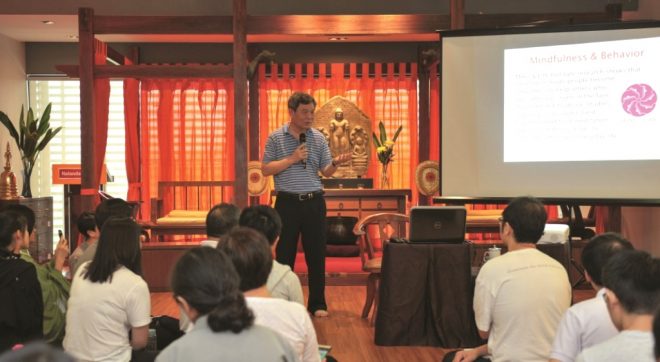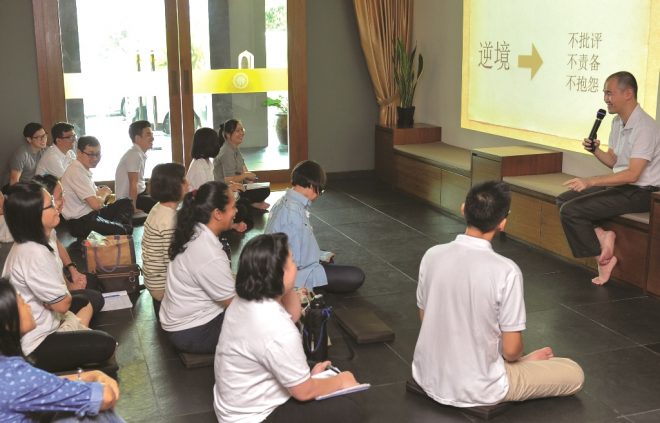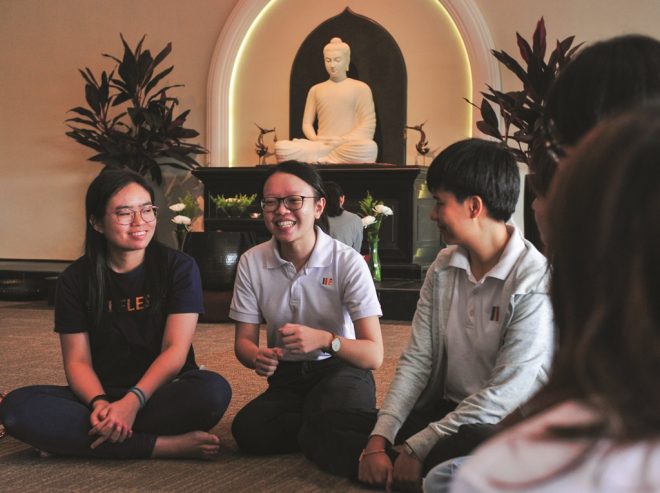Fruitful observance of Gimhāna Retreat
Fruitful observance of Gimhāna Retreat
For seven weeks after the Buddha’s Enlightenment on Wesak full-moon in May, He contemplated on the Dhamma with His perfectly clear faculty of comprehension. Then, He travelled for seven days from Uruvela to Sarnath where He preached the Dhammacakkappavattana Sutta on Asalha Day, the full-moon in July.
It is during this period that Nalanda members observe the Gimhāna Retreat annually with relatively intensive Dhamma learning and practice at Nalanda Centre. Sunday mornings and Wednesday evenings were dedicated to both communal and personal practice such as chanting, meditation, listening to Dhamma teachings, studying the scriptures, performing acts of generosity, and daily reflection.
A new addition to the Gimhāna Retreat this year was the weekly handouts that directed devotees towards developing certain qualities. These practical “tasks” were: (1) donating towards a wholesome cause; (2) not complaining about anything throughout the day; (3) expressing gratitude to someone; (4) refraining from unwholesome speech; (5) maintaining serenity in all situations; (6) forgiving someone deeply; and (7) developing mettā towards the people and beings around us.
We are grateful to all Dhamma teachers who inspired the community with their simple and pragmatic teachings. We also thank all devotees for supporting the programmes and providing spiritual friendship to motivate each other in our Dhamma cultivation. Sādhu ānumodāna!


